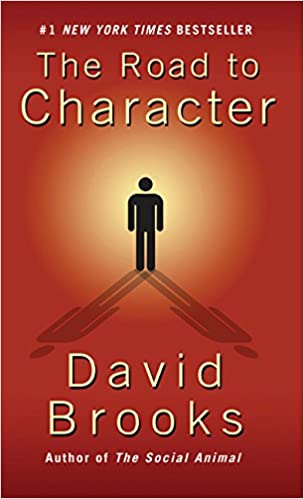David Brooks – The Road to Character Audiobook
David Brooks – The Road to Character Audiobook (Thorndike Press Largeprint Basic)

The Road to Character Audiobook
Create a testimonial that is relevant to your best-Selling writer David Brook’s “The Roadway to “Personality” was actually tested. When evaluating a book, I usually deal with five pages of detailed notes. However, I found myself with twenty.-One web page is sufficient for this review.
Brooks He has really composed a treasure of a bookThis is one that makes it possible to have future discussions on “personality”. It takes time to Enjoy the moment and take in all that you can. The Road to Character Audiobook Free. Brooks He publicly states that he wrote this publication to Save his spirit.
” The Roadway to “Personality” refers to the social change that starts with the “little me”. to The “BIGME” culture encourages individuals to Believe in yourself and be humble to A society that inspires people to They see themselves as the center and centre of the universe. This cultural shift drives us to Imagine if you have a great job but absolutely nothing to spare. to For a more authentic life. For BrooksWe have in fact lost our means to “Being good” and “doing great.”
Brooks Frames the conversation by contrast “resume virtues” – skills that a person brings to The job market that helps to Exterior success–with “eulogy virtues”, those who go to The core of our being is nerve, honesty and commitment. Our connections add quality to our lives. to genuine delight. These are represented by two opposing parts of our nature, Adam I as well Adam II. They are both constant resources of tension and opposition.
Adam I is external Adam. He desires to Build, create, make, and also find things. He is proactive in seeking acknowledgement and pleasing his needs. He is also not prone to moral risk. He doesn’t value humility, compassion or honesty.-For character development, confrontation is essential. He wants to Have a high standing and win success.
Adam II, the interior Adam. He wants to embody particular moral top qualities. He wants to to Enjoy it! to In order to help others, compromise with yourself to reside in obedience to Some transcendent reality, as well to Have a natural inner spirit that values production and honors one’s own potentials. Adam II stands for charity, love and redemption.
Adam I goes to Today’s “BIGME” society requires you to work. There are many “Large Me” messages. You are special. Trust yourself and hold on to your beliefs. This ‘Gospel of Self” begins in childhood when rewards and incentives are given for being present, not refraining. “We all are wonderful. Follow your enthusiasm, reject restrictions, and chart your own course.
This has led to an “insatiable appetite in a small space of self” ethos.-“Consider competitors as well as concern for their welfare,” values that have been influenced by envy. This is self-One of the most regrettable consequences of centeredness is selfishness. to A goal, seeing oneself above all others, and dealing with a capacity to Neglect and excuse one’s flaws, and instead magnify one’s virtues.
The “BIGME” society distorts both the purpose of our journey as well as the meaning of life. “Parts of oneself can remain untouched and unstructured. They feel that their lives are not fulfilling their true purpose and meaning. They deal with subconscious monotony, which is not caring and unattached. to The ethical objective that gives life its worth. They don’t have the inner standards to Make impregnable promises. They don’t have the inner consistency or integrity to withstand significant disapproval or strike. They judge other people based on their talents and not their worth. This outside life will eventually end. to items.”
This culture is a significant “BIG ME” one. Brooks They were haunted by the voices from the past, their humility and personality. David Brooks – The Road to Character Audio Book Online. In the past, people protected themselves against their less-eyed peers.-Catching tendencies to Self-be proud-You are egotistical and self-congratulatory. These people are not obvious to you. They were already scheduled. They were not required. to “Prove anything on the Earth.” They were an example of humility, restraint and temperance. They exuded a certain type of moral happiness. They replied to They were gentle when they were being tested. They were quiet when they were being unjustly abused and respectful when others tried. to They should be humiliated and others restrained when they try. to Provoke them… But they got the points. They did not consider their remarkable work. They didn’t even consider themselves. They were simply happy for the people they saw around them. They made you laugh more and were smarter as you spoke. to them. They were able to move through all social classes easily. They were not proud. They lived a peaceful life.free They were able to find peace, but struggled to reach maturity. These people were strong in their inner character and achieved a certain depth. They gave up. to The fight to Their hearts will be strengthened.”
